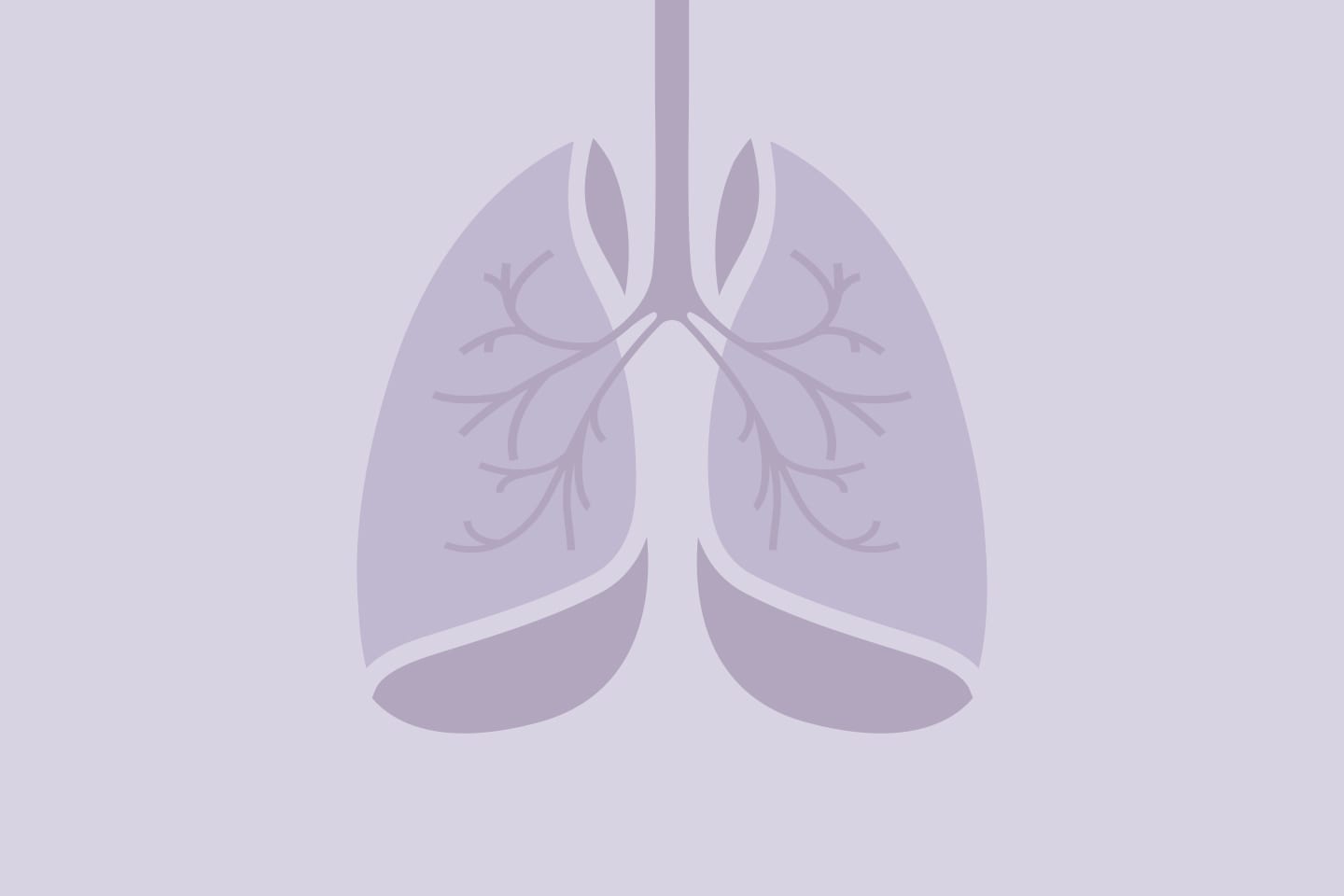Have you noticed a cough that just won’t go away? It could be that you’ve developed chronic bronchitis, which can leave you feeling lousy, tired, and short of breath.
By Ann Pierce
Bronchitis: Acute vs. Chronic
There are two kinds of bronchitis, acute and chronic. Acute bronchitis is very common, like a chest cold. It often develops following a cold or flu that irritates the lungs, and it can last up to two weeks. “Acute bronchitis is marked by fever, pain in the chest, shortness of breath, and cough,” says Dr. Ronald Jarl, a specialist in family medicine at Galen North Internal Medicine.
Acute bronchitis is primarily caused by viruses, like a cold or the flu, so antibiotics won’t help most of the time. Most cases of acute bronchitis will clear up on their own, though some could require cough suppressants or a bronchodilator, a prescription medication that helps dilate the airways so you can breathe more easily.
Your cough may stick around a bit after an acute bronchitis infection, but if your other symptoms continue far beyond a week or two, you may need to see your health provider to determine if you have chronic bronchitis.
Each year, about 9 million Americans will be diagnosed with chronic bronchitis, more than half of whom will be women, and more than three-quarters of whom will be over the age of 45. “Chronic bronchitis is a recurrent inflammation of the lungs after periods of remission,” explains Dr. Jarl. “It’s due to repeated attacks of acute bronchitis and is characterized by attacks of coughing, phlegm production, and changes in the lung tissue over time.”
The most common cause of chronic bronchitis is cigarette smoking or living with a smoker. Other causes are exposure to irritants at work, such as grains, textiles, or chemical fumes, or if you have a lowered immune system. The elderly, young children, and infants are all more vulnerable to infection. Severe heartburn that’s untreated can also cause throat irritation, which makes you more susceptible to chronic bronchitis.
Chronic Bronchitis Complications
If left untreated, chronic bronchitis can develop into chronic obstructive pulmonary disease, or COPD, which is the fourth leading cause of death in the United States. COPD is a serious disease that can affect even the smallest tasks, reducing quality of life over time and leaving you constantly short of breath. Unfortunately, older adults are especially prone to the adverse effects of COPD.
Chronic bronchitis is also dangerous for older adults because it can predispose them to pneumonia. “Pneumonia is an inflammation and thickening of a segment of the lung that makes it temporarily compromised and unable to function efficiently,” explains Dr. Jarl. “In an older patient with other medical problems, such as an already stressed immune system, this can lead to respiratory distress and further health consequences.”
Reducing Your Risk


Family Medicine Specialist
Galen North Internal Medicine
To avoid chronic bronchitis and its potential complications, it’s important to take preventative measures. These include quitting smoking and avoiding secondhand smoke,
as well as wearing a mask if there are irritants in the air at home or work. Irritants include dust, mold, pet dander, air pollution, and even cleaning solutions with a strong odor in addition to smoke. “A humidifier may give some relief, as should wearing a mask outside when the pollen count is high,” adds Dr. Jarl.
Eating a healthy diet is another part of every good physical outcome, as your body requires foods that provide nutrients for energy. Reduce your intake of foods that cause gastric irritation, since they can lead to throat irritation and bronchial inflammation.
And as usual, good hygiene and proper rest will help. Wash your hands frequently to keep germs from making you sick, and if you do catch a cold, get plenty of rest to lessen its effects.
If You Have Chronic Bronchitis
There are several warning signs that shouldn’t be ignored if you have chronic bronchitis. It’s time for a visit to your health care provider if you have a cold that lasts longer than three weeks, a fever over 102° F or any fever that lasts more than five days, or a cough that produces blood. Additionally, be sure to keep vaccinations up to date to prevent the flu or pneumonia.
Beyond that, make lifestyle changes that help you feel your best, like spending more time outdoors and engaging in positive social visits. Work as long as you are able to keep yourself involved in the community.
Most importantly, be an active participant in your health care program. Know what triggers your worst bouts of bronchitis, and take steps to eliminate those things from your life. Talk with a counselor about your situation and ask for guidance – then follow it. Ask family and friends to help support you as needed.

A lingering cough is never something to ignore. With some smart changes to your life and habits, you can continue to have a good quality of life even with chronic bronchitis. HS

